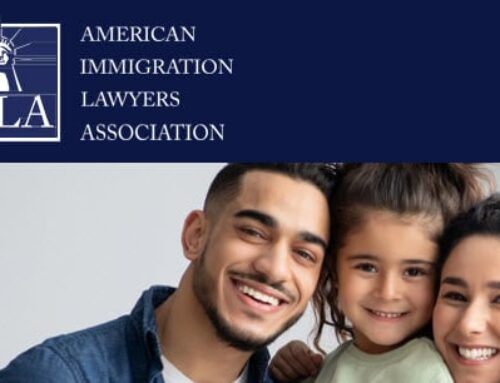USCIS Updated Eligibility Criteria for Compelling Circumstances Employment Authorization Document
On June 14, 2023, the United States Citizenship and Immigration Services (USCIS) released detailed guidance regarding the eligibility criteria for the Compelling Circumstances Employment Authorization Document (EAD) application. The new guidance delineates seven eligibility criteria applicants must meet to qualify for the Compelling Circumstances EAD, and provides specific examples of situations that USCIS may find sufficiently compelling to warrant issuing the EAD. This guidance provides employers clarity on a benefit that may bring relief to foreign nationals who are facing difficult decisions in maintaining their immigration status and work authorization in the United States.
History of the Compelling Circumstances EAD Benefit
USCIS established the Compelling Circumstances EAD provision in 2017 to provide a temporary, stopgap benefit for foreign nationals facing extremely difficult situations that prevent them from maintaining their lawful stay in the United States. Specifically, this provision targets foreign national workers who have been lawfully residing in the United States using work visas including E-3, H-1B, H-1B1, L-1, or O-1—as well as their spouses and minor children—who are in the process of applying for permanent residency (i.e., green cards) and face difficult situations that may force them to immediately stop working and leave the United States before they receive their green cards. These foreign national workers risk jeopardizing their lawful immigration status if their employment with their sponsoring employers terminates for any reason.
By enacting the Compelling Circumstances EAD provision, USCIS aimed to provide a temporary benefit for eligible foreign nationals and their family members to continue to reside and work in the United States without interruption. Notably, holders of the Compelling Circumstances EAD are legally authorized to stay in the United States even if their underlying immigration statuses have expired—thus, they are protected from accruing immigration penalties.
In December 2022, USCIS released guidance outlining options for nonimmigrant workers if their employment was terminated. One of the options discussed in the guidance is the Compelling Circumstances EAD.
Eligibility Criteria
A foreign national meeting the following criteria may be eligible for the Compelling Circumstances EAD.
- The foreign national must be presently residing in the United States in valid, unexpired E-3, H-1B, H-1B1, O-1, or L-1 nonimmigrant status (including any applicable grace periods).
- The foreign national must be a principal beneficiary of an approved I-140 petition.
- The priority date of the approved I-140 petition must not have yet reached the current date on the final action chart of the Department of State Visa Bulletin.
- The foreign national must not have filed an I-485 adjustment of status application.
- Has not been convicted of a felony, or two or more misdemeanors; and
- The foreign national can demonstrate circumstances, which prevents him or her from continuing employment or otherwise maintaining nonimmigrant status, and USCIS finds these circumstances sufficiently compelling to justify issuing the EAD.
Spouses and minor children of qualified foreign nationals may also apply for the Compelling Circumstances EAD. The EAD is valid for one year and can be renewed if the applicant can show that compelling circumstances continue to exist or the applicant’s I-140 priority date is no more than one year away from the current date on the Visa Bulletin.
What are “Compelling Circumstances”?
The Compelling Circumstances EAD’s requirement to show sufficient “compelling circumstances” has been the most difficult to define of all the eligibility criteria. In the new June 2023 guidance, USCIS has provided a more detailed explanation on the categories of compelling circumstances first highlighted in the 2017 rule, including examples of required evidence:
Serious Illness and Disabilities
Situation in which applicants or their dependents are facing a serious illness or a disability that prevents them from maintaining their currently authorized employment and subsequently affects their ability to maintain their nonimmigrant status in the United States qualifies as a compelling circumstance. For example, the applicant may be forced to move to another part of the United States to seek medical care, and departure from the United States will likely impact his or her health and ability to obtain proper care. Acceptable evidence may include a detailed explanation supplemented by a medical record and other information related to the applicant’s inability to maintain his or her current employment.
Employer Dispute or Retaliation
Situations in which applicants involved in a documented dispute with their employer regarding alleged illegal or abusive conduct, such as a whistleblower action or litigation qualify as a compelling circumstance. Acceptable evidence may include a detailed explanation accompanied by documentation of the dispute or legal filings.
Other Substantial Harm to the Applicant
Situations in which an applicant is unable to maintain his or her current nonimmigrant status or change to another legal status, and will suffer substantial harm beyond the normal impact of unemployment, qualify as a compelling circumstance. For example, if applicants require medical treatment and will suffer extreme financial hardship from losing their employment and health insurance, this may constitute eligible “compelling circumstances.” If applicants and their dependents are unable to return to their home country or will suffer substantially from relocation beyond the normal impact of a job loss, the resulting harm may also be considered under this category. Evidence of substantial harm may include financial records, bills, and other documentation of the applicant’s financial burden and liabilities, as well as the applicants or their dependents’ specialty needs.
Significant Disruption to the Employer
If the employer will suffer significant disruption of its operations because applicants are unable to maintain their employment due to unforeseen situations, this may be sufficient to establish compelling circumstances. The employer will need to provide evidence of how applicants’ absences will impact its operations and result in significant financial loss or other harm.
Importantly, USCIS will evaluate the circumstances of each case on a discretionary, case-by-case basis. The overarching emphasis in the new policy guidance is that for a circumstance to be found sufficiently compelling there must be a compounding factor that elevates the resulting hardship beyond the ordinary difficulties associated with a job loss or the end of an authorized work visa term.
The Utility of the Compelling Circumstances EAD
The Compelling Circumstances EAD can be a viable alternative for foreign national workers and their families who are in the process of applying for their green cards but face difficult situations that can impact their ability to maintain their employment and lawful nonimmigrant status in the United States. The new guidelines published by USCIS help bring clarity to the eligibility criteria and make this benefit more accessible to families in need.
Employers and foreign nationals considering this alternative should keep in mind that this EAD is not a substitute for actual nonimmigrant status. Even though the Compelling Circumstances EAD holder may reside in the United States in a period of authorized stay, this is not the same as maintaining lawful nonimmigrant status. Furthermore, applicants are not authorized for employment until they receive the approved EAD card. EAD processing at USCIS continues to be extensively delayed, with estimated processing times ranging from five to nineteen months at various service centers. A renewal application must be filed before the current EAD expires. Compelling Circumstances EADs are not eligible for automatic extensions or premium processing at this time so applicants must plan accordingly.
This alert is for informational purposes only. If you have any questions, please contact us via email at info@poonahimmigrationlaw.com for further information.




